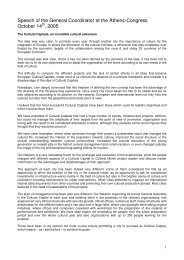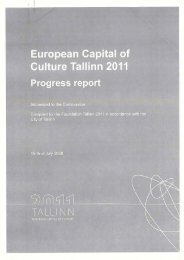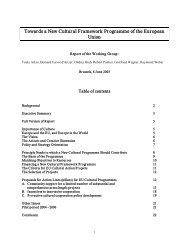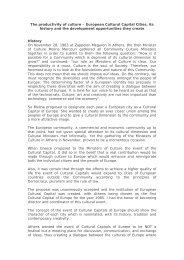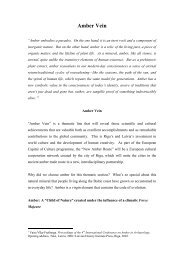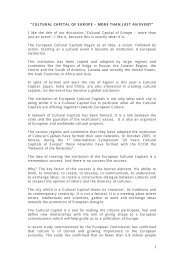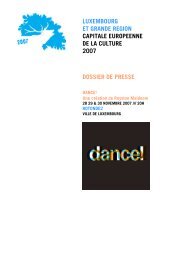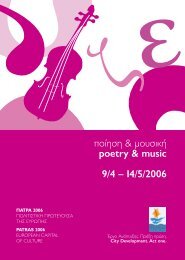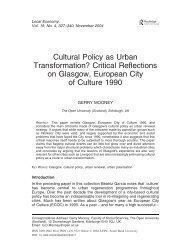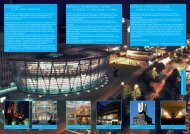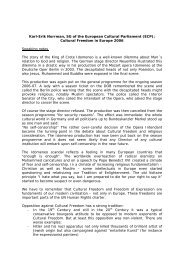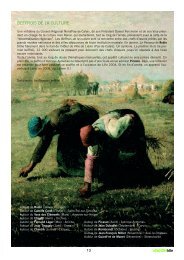Concise.pdf - Brugge Plus
Concise.pdf - Brugge Plus
Concise.pdf - Brugge Plus
- No tags were found...
Create successful ePaper yourself
Turn your PDF publications into a flip-book with our unique Google optimized e-Paper software.
However, the WES study only reports on the public impact and spending within the<br />
recreational/tourist market segment and in the period during which Bruges was<br />
Cultural Capital, i.e., from February 20 th to November 17 th 2002. In terms of numbers<br />
and expenditure the total would therefore be higher when all market segments (i.e.,<br />
also conference and business tourism) are taken into account on an annual basis.<br />
If we look at the issue of overnighting tourists according to origin, the WES study<br />
gives quite a comprehensive view for Bruges in the period during which it was<br />
Cultural Capital.<br />
On the basis of the NIS statistics, albeit for the first nine months of the year, we note<br />
a spectacular increase for Bruges in the number of visitors from France, the<br />
Netherlands and Germany (+ approx. 98,000 overnight stays). A surprising element<br />
is the increasing interest in Bruges on the part of domestic tourists (+ approx. 19,000<br />
overnight stays, up 18.4%). One downer is the sizeable decrease registered for the<br />
British market (- 23,000 overnight stays, down 7.1%), since this is an important (the<br />
largest) market for Bruges. A sharp fall in the American market (down 17.5%) and a<br />
slight increase in the Japanese market (up 2.4%) are also worthy of note.<br />
As was assumed before the start of BRUGGE 2002, and despite all the efforts, day tripping<br />
remained exponentially greater in scope than overnight tourism, whereas the<br />
economic surplus for Bruges is chiefly produced by overnight tourism. BRUGGE 2002<br />
has left a clear mark on the issue of recreational tourism.<br />
65<br />
CONCISE<br />
In the field of recreational city trips and mini-breaks, Bruges has strengthened its<br />
position in respect of the other Flemish cities of artistic interest – Ghent, Antwerp<br />
and Brussels. And one not-insignificant factor is that a large number of visitors,<br />
including some day-trippers, are considering taking a (or another) short holiday in<br />
Bruges in the years to come.<br />
Tourist market position<br />
Contextual success factors<br />
Availability and affordability of the accommodation on offer appear to have been the<br />
Achilles heel of the Bruges hotel sector for years. It is accepted that the room rates<br />
cause potential customers to turn to other cities, a trend that promotes day-excursion<br />
tourism in Bruges. At the request of BRUGGE 2002 the hotel sector made a “noncommittal”<br />
undertaking not to implement any unwarranted price hikes in 2002. A survey<br />
by the non-profit organisation Hotels <strong>Brugge</strong> & Regio revealed that room rates rose<br />
by an average of 5.09% in 2002.<br />
© A PRIOR<br />
© PATRICK DE SPIEGELAERE<br />
Lost Locations<br />
Amparo Cortés (Old and New Belgians)



